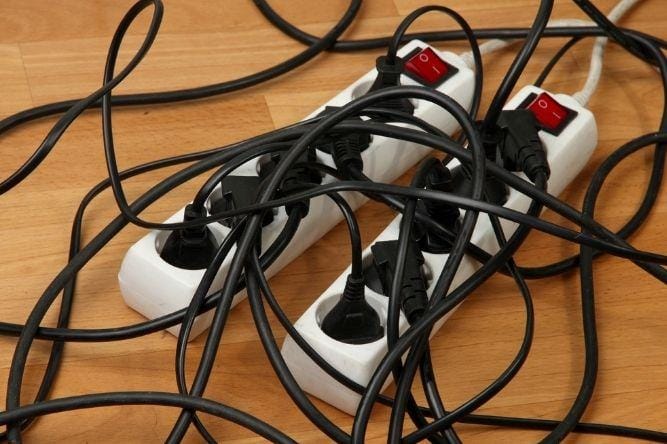

Who of us hasn’t blown a breaker before? We’ve all made the mistake of turning on two power-hungry appliances at once, like using the microwave while we make toast.
Every electrical circuit has its limits. When you overload a power point, all of your appliances and lights will abruptly shut off. Depending on your electrical system, you’ll either need to replace the blown fuse or reset the breaker to repair it.
Let’s start by defining what a power point overload is. A power point is any electrical outlet in your home. If you draw too much power from the outlet, the electrical circuit will be overloaded.
In most homes, there are several safety measures to prevent fires from overloaded circuits. One is a circuit breaker; if it detects too much current, it will cut off the power so that the wires aren’t overloaded.
Still, you want to avoid drawing too much power. Try out these energy-saving tips to avoid tripping breakers or blowing fuses:
Do you have too many high-power appliances in one room? A few signs that a power point is overloaded include:
If you notice any of these signs, it’s time to move some of your electronics around. Two appliances that draw a lot of electricity (or produce heat) should rarely be plugged into the same power point. That is, unless you know the outlet can handle it. But don’t leave it to chance.
Instead, try to shuffle around the placement of these appliances. Perhaps you could move the microwave to one end of the kitchen, and plug the toaster into a different outlet.
These days, it seems like we always have more electronics than we do electrical outlets. Most rooms have 1 to 2 power points, but you might need to plug in 5 different devices. What can you do?
Using a power bar, you can add more power points to one outlet. One great feature of power bars is that when you’re not using them, you can simply turn off the power switch. This prevents appliances from drawing power when they’re out of use; it lowers your electrical bill, and prevents appliances from overheating.
A word of warning: you also need to avoid overloading the power bar itself. Check the product package to see how many amps the bar can handle.
Maybe you’ve tried all these tricks, but your breaker is still overloading. Not only is this an inconvenience, but it’s also a safety hazard. What would happen if your electrical circuit failed to shut down? You could be at risk of a house fire or electric shock.
Power point overloads are especially dangerous with knob and tube wiring; these outdated electrical systems have a higher risk of overheating. For your safety, we suggest replacing your electrical system.
At Powertec Electric, we can upgrade the electrical circuits of your home, add more power points, and replace knob and tube wiring. Click here to learn more about our services.